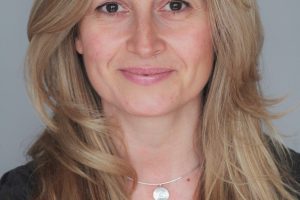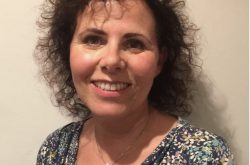Overview
I am a CBT and Compassion Focused Therapist with 23 years of experience working in different settings (NHS and private practice) and with diverse backgrounds. I am also a trained Mindfulness teacher and trained in Mindfulness Self Compassion by Chris Germer and Kristin Neff. When I came across Compassion Focused Therapy (CFT) I fell in love with it. Since 2012 CFT is the main therapy approach I use in my work with clients and I am passionate about teaching people the tools to become more compassionate with themselves as well as using it in my own life.
I have found Compassion Focused Therapy to be a very powerful and transformational model to help clients with problems of shame and self-criticism but also with all kinds of difficulties. Every single one of us can benefit from applying the principles of CFT in our lives. Life can be hard for all and it is invaluable to have the skills to support ourselves when we are emotionally challenged.
These are some of the ingredients of Compassion Focused Therapy that made me fall in love with it: It highlights the importance of the emotional brain and working with the body rather than just relying on using logic to support ourselves emotionally. In my experience this is often overlooked in other approaches like CBT. This also allows me to integrate my training in Mindfulness which focuses on working with emotions in the body.
Another aspect of CFT which I like is how it has created a highly effective blend of various disciplines and models. In particular, the emphasis on evolutionary psychology and understanding how our brains are programmed. This is extremely helpful and can lead to lots of insightful ‘aha moments. The use of imagery exercises as a way to access the ‘emotional brain’ is hugely powerful and therapeutic and can easily be turned into self-soothing skills.
One of the key CFT messages is that we are all in the same boat; there is a ‘we-ness’ not a you-the-client and me-the-therapist. It also highlights the message that any issues that we struggle with are not our fault but it is our responsibility to learn how to manage them. This is both validating and de-shaming as well as encouraging and hope inducing.
Finally, one of the CFT frameworks I use most is ‘multiple selves’. This refers to becoming aware of different parts or ‘selves’ that we all have and the fact that they are all trying to help us. Even if some of them have unhelpful consequences because they are misguided and acting in line with previous painful experiences, they actually mean well. Learning how to respond to them with compassion and understanding can be extremely therapeutic and transformative leading to a sense of inner peace rather than internal battles within ourselves.
Out of all the training that I have done in my 23 years of working as a therapist, CFT is certainly the most powerful and transformative approach I have learnt. I have found it highly beneficial not only when I have used it with clients but in my own personal life too.
Areas that I specialise in and have extensive experience of are:
• Phobias including social phobia
• Generalised Anxiety Disorder (GAD)
• Panic attacks and Panic Disorder
• Depression
• Workplace stress and performance stress
• PTSD
• Perfectionism
• Self criticism/High levels of shame
• Sleep problems and insomnia
• Anger management
• Bereavement
• Eating disorders including binge eating
I am also a specialist in treating Obsessional Disorders (OCD, Body Dysmorphic Disorder, Health Anxiety and Vomit phobia).
I’ve written a chapter on using the Compassionate Mind approach to treating BDD which is included in this book:
Trauma informed and Embodied approaches to Body Dysmorphic Disorder. Edited by Nicole Schnackenberg.
I also did a webinar on using Compassion Focused Therapy with Body Dysmorphic Disorder for the BDD Foundation which you can find on their website.
Please get in touch if you would like to discuss how I might be able to help you.
Therapist information
English and Spanish
MSC in Rational Emotive Behaviour Therapy/CBT
BABCP Accredited, 040467
Individuals
I did my first workshop in CFT in 2006 with Paul Gilbert. I started integrating it into my CBT practice straight away and have done lots of other CFT workshops since. CFT has been the main therapy approach I use in my clinical work since around 2012. I have had regular (monthly) specific CFT supervision with leading clinicians from the Compassionate Mind Foundation since 2012.


1520851605-250x165.jpg)

